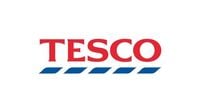For millions of Britons, the Tesco meal deal has long been a lunchtime staple—a quick, affordable way to grab a sandwich, snack, and drink while on the go. But as of August 22, 2025, the price of this iconic offer has risen again, sparking a wave of customer backlash, heated online debate, and renewed questions about the true cost of convenience in today’s economy.
According to BBC, Tesco has raised the price of its standard meal deal for Clubcard holders from £3.60 to £3.85. Shoppers without a Clubcard face an even steeper increase, with the price jumping from £4 to £4.25. The premium meal deal—featuring higher-end options—has also been bumped up, now costing £5.50 for Clubcard users and £6 for those without. This marks the second price hike in less than a year, following a previous rise in August 2024, and the third since October 2022, when the meal deal’s decade-long run at £3 finally ended.
The standard Tesco meal deal includes a main (think sandwiches, wraps, sushi, or pasta pots), a snack (crisps, fruit, chocolate), and a drink (water, soft drinks, iced coffee, or energy drinks). With over 20 million possible combinations, as The Independent reports, customers can mix and match to their heart’s content. Some of the most expensive combinations, such as the Chicken Club Sandwich, Tesco Egg Protein Pot, and a 500ml bottle of Coca-Cola, would cost £6.50 if purchased separately. Tesco claims that, in some cases, the total could exceed £8—so the deal still offers significant savings for those who choose wisely.
But the latest price increase has not gone down smoothly. Social media platforms lit up with frustrated comments and calls to boycott Tesco. One Reddit user, quoted by LADbible, lamented, “We all died in 2020 and this is hell. It’s not a deal anymore, just a meal.” Another fumed, “Price gouging, greedflation, I hope they get boycotted.” Some customers, like Kristina from Nottingham, marked the occasion with a sense of nostalgia and resignation. She told the BBC that she snapped a photo of her last £3.60 meal deal as a farewell, adding, “Unless other places whack up their prices heavily, I won’t buy another meal deal from Tesco for a very long time.”
Yet, not everyone is ready to abandon the meal deal just yet. As The Independent notes, some shoppers argue that, even at £3.85, the offer remains good value, especially when compared to the cost of eating out or buying items individually. “£3.85 for a sandwich, snack and a drink actually seems like a good deal in today’s economy. I paid more for a coffee the other day,” one Redditor observed. Another added, “Let’s be honest, it’s still good value for what you get,” though they conceded that further increases might push them to start making their own lunches.
Part of the sting for regulars comes from the meal deal’s long-standing reputation as a budget-friendly option. For ten years, from 2012 to 2022, the price held steady at £3, making it a reliable choice for students, office workers, and anyone needing a quick bite. But since inflation began to surge in the UK, supermarkets have found it harder to keep prices low. According to BBC, food and non-alcoholic drink prices rose 4.9% in the year to July 2025, and a staggering 37% over the past five years. This is a sharp departure from the 4.4% rise seen in the previous five-year period.
The cost pressures facing supermarkets are real and mounting. As IBTimes explains, the latest round of increases is driven by rising supplier costs, energy bills, and transport fees. Retailers warn that any new taxes introduced by the government in the upcoming Autumn Budget could push prices even higher. In a letter to Chancellor Rachel Reeves, the British Retail Consortium stated, “As retailers, we have done everything we can to shield our customers from the worst inflationary pressures but as they persist, it is becoming more and more challenging for us to absorb the cost pressures we face.” The Bank of England estimates that recent changes to employer National Insurance, higher employment costs, and new packaging taxes have added £7 billion in new costs to the retail sector, potentially increasing food prices by 1% to 2%.
Supermarkets across the UK are grappling with similar issues. Sainsbury’s raised its lunchtime multibuy price from £3.75 to £3.95 in June 2025, regardless of whether customers use its Nectar loyalty card. Boots, Co-op, Superdrug, and Waitrose, meanwhile, have held their meal deal prices steady, ranging from £3.75 to £5.35, while Asda maintains its three-for-two Food To Go lunch deal. As The Independent points out, Tesco’s latest increase makes its meal deal more expensive than those at Morrisons, Sainsbury’s, and the Co-op, though it remains cheaper than Boots in many locations.
The battle for customer loyalty is fierce. Tesco’s Clubcard scheme, used by about 80% of its shoppers, is a key weapon in this fight. Loyalty cards not only offer discounts but also give retailers valuable data on customer preferences and habits. According to data from Kantar, the average person holds loyalty cards for three supermarkets, highlighting just how competitive the sector has become. Still, even Clubcard members are feeling the pinch, as the savings they once enjoyed continue to shrink.
In an effort to keep the meal deal fresh and appealing, Tesco is expanding its range. The supermarket plans to add new products to its premium meal deal, including the Finest Salmon Konbini Roll and Finest Gochujang Konbini Roll. Earlier this year, the meal deal even featured a limited-edition birthday cake sandwich, which drew mixed reviews from shoppers. Yet, some customers argue that “gentrifying” the meal deal with fancier options has contributed to its decline as a low-cost lunch solution. “Once you throw in multi-fruit smoothies, exotic fruit pots and freshly made coffees, clearly that can’t remain below £4 for long,” one Reddit user commented.
Political voices have joined the fray, too. Liberal Democrat MP Joshua Reynolds took to social media to express his dismay, writing, “National outrage! Recall parliament!” While this may be tongue-in-cheek, it underscores the symbolic importance of the meal deal in British daily life—and the depth of feeling provoked by its rising cost.
Looking ahead, the outlook remains uncertain. The Bank of England expects food price inflation to peak at around 5.5% by the end of 2025 before easing to between 2% and 3% in 2026. But for now, customers are left to decide whether the convenience and variety of the Tesco meal deal still justify its higher price. As one shopper put it, “They’re barely a concept in any other country. We’re lucky to even have them.”
One thing is clear: in an era of rising costs and shrinking budgets, even the humble meal deal is not immune to change, and British consumers are watching every penny more closely than ever before.


